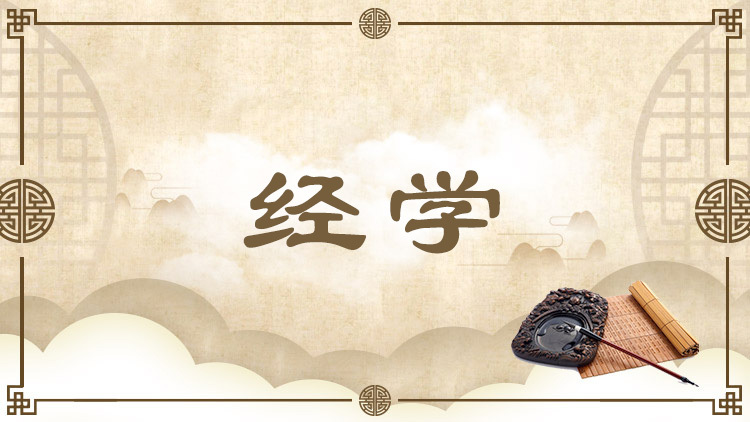经学 Classics Scholarship

研究儒家经典的学问。“经学”也称“六艺之学”,是围绕《诗》《书》《礼》《乐》《易》《春秋》等儒家经典展开的学问,包含对经典的训诂注疏、义理阐释以及对文本传承、学派源流等问题的讨论。“经学”的核心是通过对经典义理的不断阐释,表达阐释者对生活世界的秩序与价值的根本理解。
It refers to the study of Confucian classics. Classics scholarship is also called "studies of the six arts," namely, the scholarship on The Book of Songs, The Book of History, The Book of Rites, The Book of Music, The Book of Changes, and The Spring and Autumn Annals, encompassing annotations and exegeses of classics, explication of the principles of classics, and discussions of such subjects as textual inheritance and traditions, as well as the origins of various schools. Classics scholarship is pursued to express one's fundamental understanding of the order and values of the world through constant exploration of the underlying implications of such classics.
引例 Citation:
◎及高皇帝诛项籍,引兵围鲁,鲁中诸儒尚讲诵习礼,弦歌之音不绝,岂非圣人遗化好学之国哉?于是诸儒始得修其经学,讲习大射乡饮之礼。叔孙通作汉礼仪,因为奉常,诸弟子共定者,咸为选首,然后喟然兴于学。(《汉书·儒林传》)
等到汉高祖诛杀了项籍,率兵包围鲁国,鲁国的儒生们还在讲授、诵读、修习礼仪,弦歌的声音不断,难道不正是因圣人遗存的教化而好学的国度吗?自此众位儒生才得以开始修习经学,讲习大射、饮酒的礼仪。叔孙通制定了汉代的礼仪,因此做了掌管宗庙礼仪的奉常,共同参与制定礼仪的弟子们,都成了被优先选拔的人,然后经学就迅速兴盛了。
After Liu Bang, Emperor Gaozu of the Han Dynasty, defeated Xiang Yu, he besieged the State of Lu with his army. Confucian scholars in the State of Lu, however, continued with their study, reading aloud, practicing ceremonial rites, playing music, and singing songs. Obviously it is due to the sage's legacy that learning was so valued in the State of Lu. So all Confucian scholars began to study and practice the classics, learning and practicing for the grand archery competition and ceremonial drinking rites. Shusun Tong formalized the court rituals in the Han Dynasty, and then became the official in charge of performing rites in ancestral temples. All those disciples who participated in setting up the court rituals were put on a priority list for promotion. This led to the flourishing of the study of classics. (The History of the Han Dynasty)
推荐:教育部 国家语委
供稿:北京外国语大学 外语教学与研究出版社
责任编辑:钱耐安





